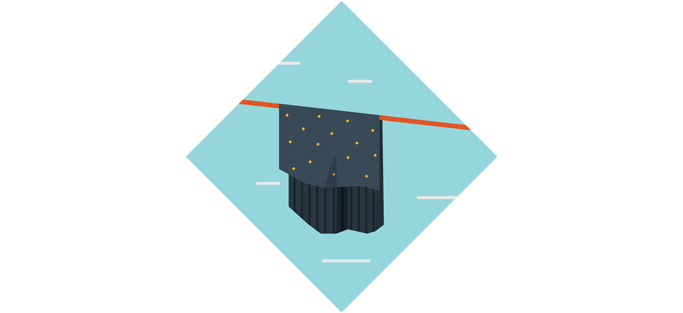
Rivka the seamstress stood fretting beside her shop’s shelves, which were empty but for one last bolt of cloth. Times were tougher than usual for her poor little shtetl, and there was no telling when fortunes might change. Rivka clucked her tongue with worry. How much good could a simple seamstress do with nothing but a single bolt of fabric?

Her thoughts were interrupted by a group of gleeful women rushing into the shop. There was to be a wedding! Rivka jumped with joy — and then, after a moment of hesitation, took out her scissors and began cutting the fabric to make a wedding dress.
After the wedding ceremony, a farmer approached Rivka, saying, “I must deliver a load of grain to my brother in the North, and will need a heavy coat for the trip.” Rivka knew what to do.
Though it pained her to retrieve the dress from the new bride, there was no other fabric left.
She unstitched the dress and resewed it into a heavy quilted coat. When the farmer returned from his journey, he thanked Rivka for the coat that had served him so well — and then returned it, so the skilled seamstress might again put the fabric to good use.

Over time, Rivka cut into that fabric over and over: a shawl for bubbe, a bar mitzvah suit, a new pair of work trousers, an apron, a baby blanket. Occasionally, people would ask how it was possible for one bolt of cloth to continue to provide for their entire community. Was it a miracle? But the miracle was Rivka’s: a kite for the children to play with, a scarf against the chill, a band for Old Mordechai’s hat, an eyepatch, a ribbon for little Techiya’s hair.
When Techiya grew too old for ribbons and returned the strip of fabric, Rivka despaired. All that remained of the original cloth was this ragged scrap — barely enough to make a small button. As she sewed the button, Rivka reflected mournfully on the bolt of cloth that had served their shtetl so well; no longer would it be of help to anyone.
Just then, the rabbi burst in, having run from the synagogue. “The clasp on the Torah belt has broken; the Torah cannot be secured,” he cried. “Rivka, do you have a single button for the gartel?”

From that day on, when the townspeople looked at the button holding the Torah tight, each remembered what the fabric had meant to them: how it had kept them warm, had adorned them in celebration and in mourning, had helped them to play and to work, and had clothed the young and the old alike. Through Rivka’s care, the fabric had not diminished to a button at all; rather, it had expanded to the size of the shtetl itself.
When you have something of value — be it time, money, health — and are careful to use it wisely so as to appreciate and make the most of it, you are efficient.


